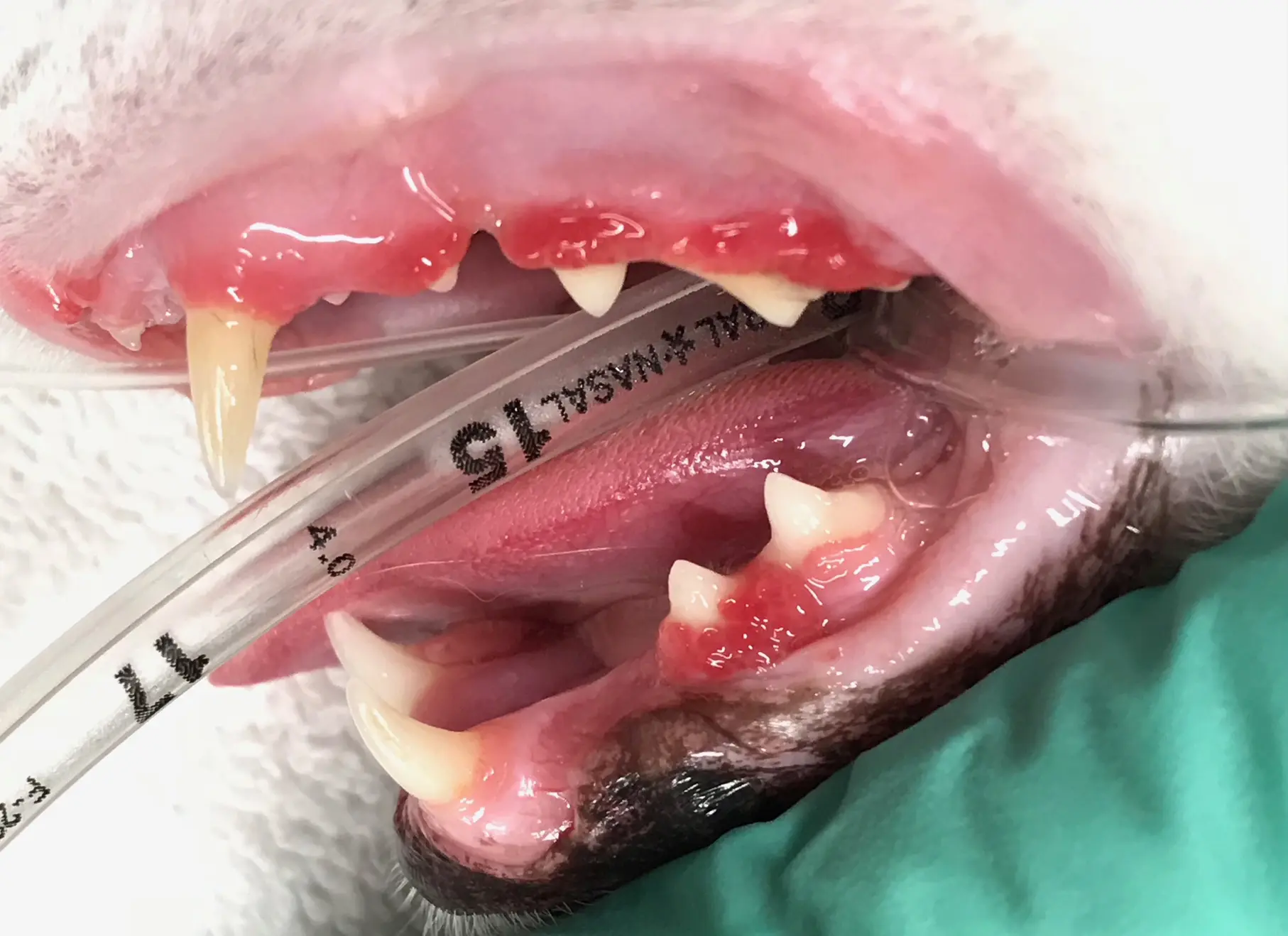
05 Jun Feline Juvenile Onset Periodontal Disease
Periodontal disease (gum disease) affects up to 80% of dogs and cats aged two years and older. There are also subsets of oral disease that can affect the young or juvenile feline patient. One of these conditions is called juvenile onset periodontitis. This cat gum disease is similar to a condition called Aggressive Periodontitis, which is seen in humans during the teenage years. The underlying cause is unknown in people as in cats.
How do cats get juvenile onset periodontal disease?
Cats have two sets of dentition, primary (deciduous) and permanent (adult) teeth. The permanent dentition in cats should be fully erupted by 7-8 months of age. As the permanent teeth erupt through the gum line, it may cause a very brief, transitory gingivitis. Mild halitosis or bad breath may also be noticed at this time.
In juvenile onset periodontal disease, there is an excessive immune response to these erupting teeth. This process leads to severe gingivitis, rapid accumulation of plaque and subsequent inflammation of the periodontal tissues. If left untreated, this cat gum disease will lead to oral pain and eventual tooth loss. It may occur in any breed, but the domestic shorthair, Maine Coon and Siamese breeds are at an increased risk.
What are the signs and symptoms of cat gum disease?
Clinical signs of this disease include acute gingivitis, bleeding gums, bad breath and oral pain. Symptoms related to oral pain include decreased appetite, decreased grooming, drooling, and weight loss. Unfortunately, this painful and progressive condition is often overlooked as most cats are spayed/neutered between 5-6 months of age with their subsequent visit a year later! By that time, this disease has progressed, and multiple teeth may need to be extracted. If left untreated, it may lead to painful tooth resorption.
What are the treatment options?
Treatment for this disease includes scheduling a COHAT (Comprehensive Oral Assessment Treatment) every three months and vigilant, daily home care. A COHAT involves a comprehensive oral exam, full mouth radiographs and complete dental cleaning under anesthesia. There are numerous additional adjunctive treatments that have been proven to help tremendously.
Your local veterinary dentist
Juvenile onset periodontitis is a plaque-driven disease, and success is dependent on attempts to keep the oral cavity clean. If treated early and aggressively, it may become quiescent by two years of age. Schedule your furry friend an oral exam today at Animal Dental Care and Oral Surgery in Castle Rock or Colorado Springs, CO!


